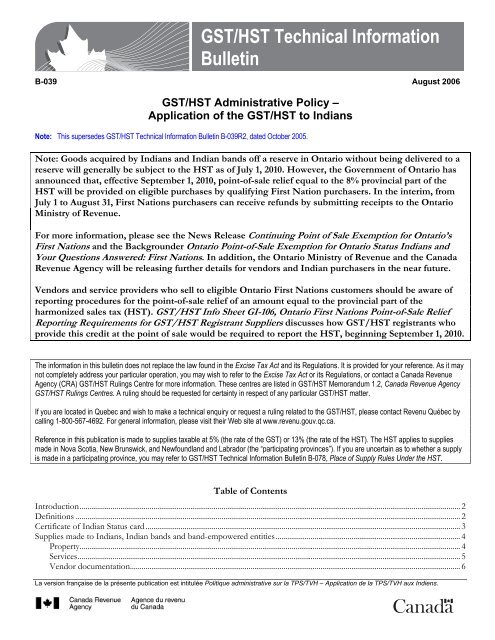


Each corporation is assigned only one Business Number but multiple accounts can be opened up under this number. If you have specific legal questions you should consult a lawyer.A Federal Business Number (BN) is a 9-digit number which Revenue Canada Agency assigns to a business such as a corporation, a sole proprietorship or a partnership in Canada. All tax situations are specific to their facts and will differ from the situations in this article. It does not provide legal advice nor can it or should it be relied upon.

This article provides information of a general nature only. If you have any questions about HST in Canada or any of its Provinces, or if you have questions regarding setting up your business’ GST/HST remittance structure, please give us a call or set up a consultation online! If a taxpayer is eligible, they receive a tax-free quarterly payment intended to offset all or part of the GST/HST paid in the previous taxation year. Eligibility for the GST/HST credit is determined from the previous year’s tax return.
CANADA REVENUE AGENCY HST QUESTIONS FULL
Interestingly, this rule applies to Canadian businesses that have their destination address outside of Canada.įor a full breakdown of GST/HST rates in Canada and its provinces, please click here.įinally, as a side note, the federal, and some provincial, governments issued a GST/HST credit to help compensate low-income individuals who are negatively affected by the GST/HST. Important to note, HST/GST/PST does not apply to sales of goods and services to jurisdictions outside of Canada. If the business resides in Saskatchewan, but they are shipping goods to Alberta, then they would charge 5% GST and no PST. For example, if the business resides in Nova Scotia, but they are shipping the goods to Ontario, they would charge an HST rate of 13% instead of 15%. The main rule is that businesses must charge either HST or GST/PST according to the destinations provincial or territorial taxation rates. Due to the different tax regimes amongst the provinces, this can prove to be somewhat complicated at times. If businesses are selling goods and services out-of-province or out-of-country, they need to ensure they are charging the appropriate tax. Small business owners that are eligible for exception should weight the pros and cons of registering for GST/HST before deciding not to. That said, businesses should consider registering for GST/HST regardless because it allows them to claim Input Tax Credits on the goods and services they consume during the course of conducting their business.

If a small business makes less than $30,000.00 annually, they are not required to register for GST/HST. Similar to exceptions for GST, there is a “Small Supplier” exception for businesses that charge HST in the appropriate provinces. If the province does not enact HST collection, the CRA will only collect 5% GST.īusinesses that operate in any of the provinces that charge HST have the responsibility to charge, collect and remit HST as required by the tax provisions. HST may differ across the five provinces mentioned above, as each province establishes its own PST rates within the HST calculation. Once collected, the CRA remits the appropriate amounts to the participating provinces. HST is collected by the Canada Revenue Agency (“CRA”). These include New Brunswick, Newfoundland and Labrador, Nova Scotia, Ontario and Prince Edward Island. The HST is in effect in five of the 10 Canadian provinces. HST resulted from attempts by the federal government to pressure provinces to abandon their individual provincial sales tax systems in favour of a blended tax that they argued would improve the competitiveness of Canadian businesses across the country.ĭue to opposition from some provinces, the HST has not been universally implemented, and some provinces still charge and administer their own provincial taxes in addition to GST. It is most often used in provinces where both the federal goods and services tax and the regional provincial sales tax have been combined into a single value added sales tax. The harmonized sales tax (“HST”) is a consumption tax in Canada and it combines the goods and services tax (“GST”) and provincial sales tax (“PST”). GST/HST, Tax Ma1 comment What is HST in Canada?


 0 kommentar(er)
0 kommentar(er)
